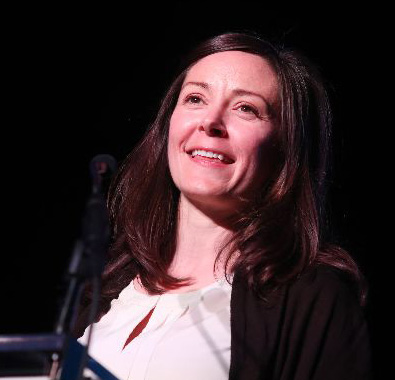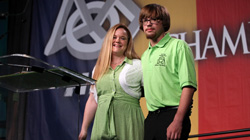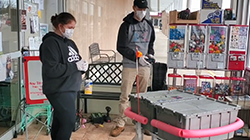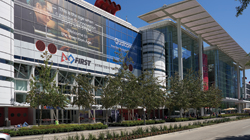INSPIRATION IS EVERWHERE
Featured Image

Display Title
FIRST teaches kids to think like engineers
Sub Title
Dr. Leigh Nathan
FIRST Alumna, Connecticut
I'm a psychiatrist and a proud product of FIRST. I participated in FIRST in high school and mentored in college at Northeastern University. FIRST was a prominent factor in my choice of college and major, as well as my decision to study medicine.
As a FIRST team member, I had spent enough time picking out bearings for robot arm assemblies to know a good bearing design when I saw one. One evening, I happened to take a look at my hand and realized that the finger joints are actually very impressive bearings. They're self-lubricating, seemingly friction-less, and have a lifespan of upwards of a hundred years. In the same instant that I think of moving my fingers, they've already moved and with remarkable precision. How cool is it that? I was so struck by the mechanical elegance of the human body, that I decided to go to medical school and learn more about it.
FIRST taught me a lot of things, but there are two that I want to call your attention to. The first is Gracious Professionalism®, which teaches us that when we lend a hand to our competitors, we all win. It has us recognize the humanity in our competitors and the value of encouragement, mentorship, and opportunities to learn by doing. It's therapeutic and I am certain that, though there is no randomized control trial to verify this, it reduces or prevents depression and anxiety among the young people who participate in FIRST.
I practice Gracious Professionalism every day at work, but by a different name. In this new era of psychiatry, it's called the recovery model. There are volumes of evidence showing that those essential ingredients of Gracious Professionalism, those big doses of encouragement, mentorship, opportunities, and tools for achievement are crucial for recovery from episodes of mental illness, addiction, and homelessness.
The second point is the design process. Healthcare is undergoing an essential redesign, becoming more efficient and more patient/family/provider/tax payer-centered, in part because hospitals have been adopting quality practices from the manufacturing world. This involves training seasoned healthcare workers to think like process engineers.
Healthcare workers who can design in groups are very well poised to transform our healthcare system. Can you imagine how phenomenally efficient our healthcare system could be if the healthcare workers of the future were trained to think like engineers years before they ever thought about becoming a clinician? FIRST does this. After a few seasons of FIRST, the process of designing anything with others, with few resources, becomes as intuitive as riding a bike.



